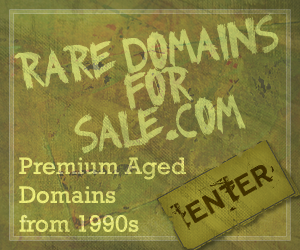Key points
- Relationship apps have transformed the panorama of relationship, but it is important to ask whether or not having extra picks is at all times higher.
- Dating apps seem to prey on the concern of regret through the relentless temptation of limitless suits.
- To mitigate possibility paralysis, believe including filters deliberately and digesting profiles mindfully.
I admit that I enjoy having options; the freedom to choose. I revel in choosing from a dozen different types of milk: cow milk, sheep milk, and almond milk; you even get to choose the proportion of fat to your most popular protein beverage. Turning on Netflix, there are thousands of motion pictures and presentations in nearly every language and style; in case you are uncertain of what to observe, Netflix has algorithms to counsel shows in line with your viewing history and standard developments. In looking for a therapist, in all probability you have been down the rabbit gap of scrolling prior pages and pages of therapists’ profiles, carefully weeding via each and every bio, yet discovering yourself unable to take a bounce of religion over the apparently bottomless pool of choices.
In our society, identification is intertwined with picks. Anyone who has pondered over two virtually an identical baggage of pasta (or espresso beans-I welcome you to fill in the blank) on the grocery retailer has wrestled with possibility paralysis, a phenomenon that plagues brand new society. The variety of alternatives we make goes from the espresso we drink to the accomplice we select to share a life with. Neatly, particularly when it comes to selecting partners.
If Darwin were alive nowadays, he could be intrigued, if no longer puzzled, by using the modern mating dance: geographical boundaries are mitigated by using on-line relationship, signals of enchantment communicated with the aid of the bravery of an index finger. Apps have transformed the landscape of dating, and achieved so profitably. In 2021, Match Group, which owns Tinder, Hinge, OkCupid, and healthy, among others, introduced in a net profit of $922 million. Tinder itself generated $1.6 billion in revenue (Iqbal, 2022), with 70 p.c of its income coming from subscriptions (Bromwich, 2019).
More picks, more issues?
Many individuals are attracted to relationship apps for his or her convenience. The expansion of the digital dating pool stretches beyond geographical confinement and apps supply the pliability of having somewhat low-drive interactions. We believe that having extra options will nudge us in opposition to discovering the suit closer to our choice. However, as folks pay for dating app subscriptions and still to find themselves trapped in the relationship slot computing device waiting for the perfect fit, possibly it is time to ask: Is having more options always better?
In a study the place contributors have been asked to imagine having to decide on a possible accomplice from various-sized courting swimming pools (e.g., 10 vs. 20 vs. 50 vs. a hundred), most individuals most well-liked courting pools with 20 to 50 people as an alternative of relationship pools which are better or smaller (Lenton, Fasolo, & Todd, 2010). Curiously, as courting swimming pools obtained better, participants anticipated it to be increasingly more troublesome to make their selection and they expressed feeling more remorseful about and less delight with their choice once they had more than 50 doable suitors to make a choice from. As tribal animals socialized to are living in smaller groups, humans might not be evolving quick enough to compare the growing choice of choices presented via dating apps. Due to this fact, because the selection of options increases, we turn to the trustworthy search standards to help us determine ideal fits: “6 feet and above,” “faculty degree,” “needs youngsters,” and so forth. Search algorithms are precise, however do not inform you much about personality.
Courting burnout and the concern of missing out
The paradox of choice is that as a substitute of regretting the selection that we did make, we mourn the lack of NГєmero de telГ©fono de quite A lot of Fish what we did not make a choice, the “what ifs.” The pull of be apologetic about grows much more ambitious once we are introduced with a whole bunch, if no longer lots, of options on dating apps. “What if I simply stayed on there just a little longer? Perhaps I will meet anyone better.” Dating apps prey on our fear of regret in the course of the temptation of limitless matches, not to mention the preliminary lure of revealing us attractive participants. This can be a the reason is, folks in faithfully committed relationships could have difficulty deactivating courting apps, in search of validation of their selection of companion whereas maintaining the fable of a unique future with a distinct partner.
Each the perception of having unlimited choices on relationship websites and the safety of relationship at the back of a reveal make rejection a less emotional choice. Researchers found individuals are likely to reject more possible companions when there are elevated options (Pronk & Denissen, 2020). It is the never-ending “hen and egg” dilemma: you get fewer suits the extra people you reject, and with fewer fits, you risk more disappointment for your picks and pessimism in your romantic future, which leads you to reject more attainable suitors.
Some courting web sites enable participants to pay for subscriptions to peer who “favored” their profiles and transcend a limited selection of profiles a day. The “concern of lacking out” is likely an impressive motivator for people to forged a large net on relationship apps and pay for subscriptions to maximise their probability of catching the most effective associate. Yet, paid subscriptions could backfire through overloading our minds with too many suits to handle, leaving us less satisfied with our choices and burned out from relationship. To help mitigate choice paralysis on courting apps, I’ve the following ideas:



